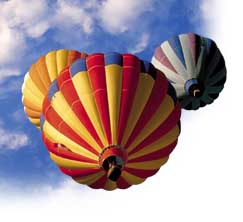| Home | Articles | Store | Ask Del | About Hypnosis | About Del | Testimonials | For Therapists | Links | Contact |

Adjusting the Hypnotic Induction to the Client
Maurice Kouguell, Ph.D., BCETS
For the Introvert:"The Introvert is characterized by a hesitant, reflective, retiring, nature that keeps itself to itself, shrinks from objects; is always slightly on the defensive and prefers to hide behind mistrustful scrutiny". (Jung 1953,p.44)
For such a type the induction will acknowledge their needs. Let them be introverted without judgment. It is suggested that a familiar trance experience be used. Always respecting and allowing their need for privacy and time.
Introverts may experience trance very frequently, for they spend a good deal of time focusing on their inner world. It is also wise to remind them that their need for privacy will be respected.
For the Extrovert:
"Extroverts are normally characterized by an ongoing candid and accommodating nature that adapts easily to a given situation, quickly form attachments and setting aside any possibly misgiving will often venture forth with careless confidence into unknown situations". (Jung 1953,p.44)
For these clients, it is suggested that the induction be congruent with their life experience, possibly focusing on the person or situation with which the extrovert is preoccupied.
The induction might take the way of beginning with a familiar process and gradually adding on the extrovert's life experience to it. Encourage them to feel that they will find answers within themselves.
Sensing Type:
"Those with a sensing preference choose to use their physical senses as the major source for information gathering. Sensing types tend to be quite realistic, practical and present orientated, since what they know is based on what they have seen, smelled, heard or touched." (von Franz, 1971)
For the sensing type it is suggested that attention should be paid to details of the trance rather than to the overall experience and eliciting sensations based on previous experiences.
Intuitive Type:
"This type focuses on global aspects and can relate best by proceeding from the general to the specific. Metaphors and symbols and abstractions are welcomed by that client. "Introverted intuitive types may appear to be odd, eccentric and preoccupied with daydreaming and are not deeply concerned about being understood by others.
Extroverted intuitive types are guided by hunches, rather than facts, and may vacillate from one idea to the next and they may be seen as creative and flexible." (Hergenhahn,1984,p.52)
The approach of the induction should include looking at future possibilities while using techniques of story telling, metaphors and symbols. Since daydreaming and imagination are their characteristics, those can be used.
Thinking Type:
In this type, the individuals have a need for control and they need to be made to feel that control is acceptable; that in time, they will accept that they have the control over giving up control. It may be wise to ask them what imagery they might like to visualize.
The process of induction should take into account the above and allow them to develop their own style of going into trance.
Feeling Type:
Those individuals make decisions based on values or emotions without necessarily resorting to logic.
The induction needs to focus on specific feelings. It is suggested that past experiences will facilitate entering a hypnotic state, allow the client to feel accepted.
The above are examples of how understanding temperaments and types can be an helpful adjunct to structuring an induction based on the understanding and awareness of the clients' temperaments or typology.
As illustrated above, each preference has its own characteristics. Acknowledging and recognizing them will certainly enhance rapport.
References:
Brenneis,S. and Boersma,F. Typology and Trance; Developing Synchronicity in Hypnotic Induction, Journal of Medical Hypnoanalysis, 1993,Vol.98.
Jung,C.G. 1959 Basic Writings, Random House
Maurice Kouguell, Ph.D., BCETS
aurice Kouguell Ph.D., BCETS. Director: Brookside Center for Counseling and Hypnotherapy, 997 Clinton Place, Baldwin New York 11510 phone/fax 516 868-2233 e-mail contact@brooksidecenter.com
Brookside Center Web Site http://www.brooksidecenter.com/
